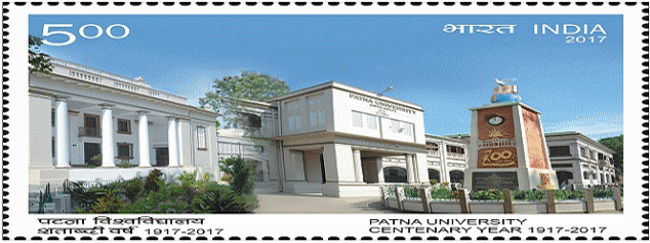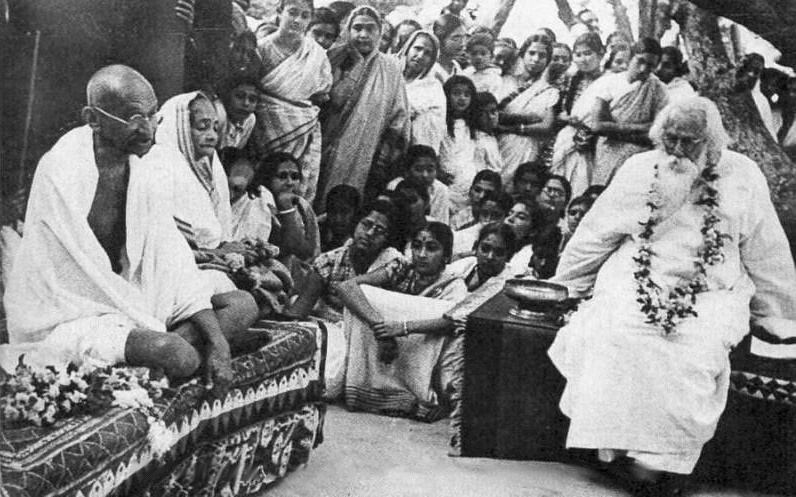|
Pandit Raghunath Murmu
Pandit Raghunath Murmu (May 1905 – 1 February 1982) was an Indian Santali writer and educator. He developed the Ol Chiki script for Santali language. Until the nineteenth century, Santali people had no written language and knowledge was transmitted orally from one generation to other. Later European researchers and Christian missionaries started to use Bengali, Odia, and Roman scripts to document the Santali language. However, Santalis did not have their own script. His development of the Ol Chiki script enriched the cultural identity of the Santali society. He wrote many songs, plays and school text books in the Ol Chiki script. Biography Raghunath Murmu was born on the day of Baisakhi Purnima (Buddha Purnima), 1905 in the Dandbose (Dahardih) village (near Rairangpur town) of Mayurbhanj State (now in Odisha), India. He is the son of Nandlal Murmu and Salma Murmu. His father, Nandlal Murmu, was a village head and his paternal uncle was a Munsi in the court of King Pratap ... [...More Info...] [...Related Items...] OR: [Wikipedia] [Google] [Baidu] |
Patna University
Patna University is a public state university in Patna, Bihar, India. It was established on 1 October 1917 during the British Raj. It is the first university in Bihar and the seventh oldest university in the Indian subcontinent in the modern era. It offers different undergraduate and postgraduate degree level courses. History Patna University was established by an Act of the Imperial Legislative Council passed in September 1917. It started the journey in October 1917 as an affiliating and examining body when JG Jennings took charge of this university as the first vice-chancellor. In the modern era of India, it is one of the oldest universities in this region. Later in 1919, the governing bodies of the university—the Senate and the Syndicate—were formed. The iconic Wheeler Senate House of the Patna University was built in 1926 for which Raja Devaki Nandan Prasad of Munger donated the money. When the university was first established it had jurisdiction over all higher educat ... [...More Info...] [...Related Items...] OR: [Wikipedia] [Google] [Baidu] |
Adivasi Writers
The Adivasi refers to inhabitants of Indian subcontinent, generally tribal people. The term is a Sanskrit word coined in the 1930s by political activists to give the tribal people an indigenous identity by claiming an indigenous origin. The term is also used for ethnic minorities, such as Chakmas of Bangladesh, Khas of Nepal, and Vedda of Sri Lanka. The Constitution of India does not use the word ''Adivasi'', instead referring to Scheduled Tribes and Janjati. The government of India does not officially recognise tribes as indigenous people. The country ratified the International Labour Organization (ILO) Convention 107 on Indigenous and Tribal Peoples of the United Nations (1957) and refused to sign the ILO Convention 169. Most of these groups are included in the Scheduled Tribe category under constitutional provisions in India. They comprise a substantial minority population of India and Bangladesh, making up 8.6% of India's population and 1.1% of Bangladesh's, or 104.2&n ... [...More Info...] [...Related Items...] OR: [Wikipedia] [Google] [Baidu] |
1982 Deaths
__NOTOC__ Year 198 (CXCVIII) was a common year starting on Sunday (link will display the full calendar) of the Julian calendar. At the time, it was known as the Year of the Consulship of Sergius and Gallus (or, less frequently, year 951 ''Ab urbe condita''). The denomination 198 for this year has been used since the early medieval period, when the Anno Domini calendar era became the prevalent method in Europe for naming years. Events By place Roman Empire * January 28 ** Publius Septimius Geta, son of Septimius Severus, receives the title of Caesar. ** Caracalla, son of Septimius Severus, is given the title of Augustus. China *Winter – Battle of Xiapi: The allied armies led by Cao Cao and Liu Bei defeat Lü Bu; afterward Cao Cao has him executed. By topic Religion * Marcus I succeeds Olympianus as Patriarch of Constantinople (until 211). Births * Lu Kai (or Jingfeng), Chinese official and general (d. 269) * Quan Cong, Chinese general and a ... [...More Info...] [...Related Items...] OR: [Wikipedia] [Google] [Baidu] |
1905 Births
Nineteen or 19 may refer to: * 19 (number), the natural number following 18 and preceding 20 * one of the years 19 BC, AD 19, 1919, 2019 Films * ''19'' (film), a 2001 Japanese film * ''Nineteen'' (film), a 1987 science fiction film Music * 19 (band), a Japanese pop music duo Albums * ''19'' (Adele album), 2008 * ''19'', a 2003 album by Alsou * ''19'', a 2006 album by Evan Yo * ''19'', a 2018 album by MHD * ''19'', one half of the double album '' 63/19'' by Kool A.D. * '' Number Nineteen'', a 1971 album by American jazz pianist Mal Waldron * ''XIX'' (EP), a 2019 EP by 1the9 Songs * "19" (song), a 1985 song by British musician Paul Hardcastle. * "Nineteen", a song by Bad4Good from the 1992 album ''Refugee'' * "Nineteen", a song by Karma to Burn from the 2001 album ''Almost Heathen''. * "Nineteen" (song), a 2007 song by American singer Billy Ray Cyrus. * "Nineteen", a song by Tegan and Sara from the 2007 album '' The Con''. * "XIX" (song), a 2014 song by S ... [...More Info...] [...Related Items...] OR: [Wikipedia] [Google] [Baidu] |
Purulia District
Purulia district (Pron: puruliːaː) is one of the twenty-three districts of West Bengal state in Eastern India. Purulia is the administrative headquarters of the district. Some of the other important towns of Purulia district are Raghunathpur-Adra, Jhalda, Anara and Balarampur. History Pre history The territory of present Purulia district was a part of Banga, one of the 16 Mahajanapadas according to Jaina Bhagavati Sutra (c. fifth century CE) and was also a part of the country known as Vajra-bhumi in ancient period. During medieval period, this territory was regarded as part of ''Jharkhand'' region. Little is known about Purulia before the British East India Company acquired this territory by obtaining the grant of Diwani of the subahs of Bengal, Bihar, Odisha in 1765. Pre independence By Regulation XVIX of 1805, a Jungle Mahals district composed of 23 parganas and mahals including the present Purulia was formed. By Regulation XIII of 1833 the Jungle Mahals district was bro ... [...More Info...] [...Related Items...] OR: [Wikipedia] [Google] [Baidu] |
Ranchi University
Ranchi University is a public state university in Ranchi, Jharkhand, India. It was established in 1960 by an Act of the Bihar legislature. Ranchi University offers degrees in undergraduate, post-graduate, M.Phil. and doctorate programs. History Before the establishment of Ranchi University, all degree colleges of the present-day Jharkhand (except Santhal Parganas) were affiliated to the Patna University. Ranchi University was established on July 12, 1960, as a teaching cum affiliating university. When the Ranchi University was first established, all degree colleges of present-day Jharkhand came under its jurisdiction. Bishnudeo Narayan Singh was appointed as the first vice-chancellor of this university. In 1992, Vinoba Bhave University was created by bifurcating the Ranchi University, reducing its jurisdiction area by nearly half. In 2009, the university was further divided to create two more universities: – Nilamber Pitamber University, Medininagar in January 2009, and Kolhan ... [...More Info...] [...Related Items...] OR: [Wikipedia] [Google] [Baidu] |
Jaipal Singh Munda
Jaipal Singh Munda (3 January 1903 – 20 March 1970) was an Indian politician, writer, and sportsman. He was the member of the Constituent Assembly which debated on the new Constitution of the Indian Union. He captained the Indian field hockey team to clinch gold in the 1928 Summer Olympics in Amsterdam. Later, he emerged as a campaigner for the causes of Adivasis and the creation of a separate homeland for them in central India. As a member of the Constituent Assembly of India, he campaigned for the rights of the whole tribal community. Early life Jaipal Singh Munda, also known as Pramod Pahan, was born in a Munda tribal family, on 3 January 1903 in Takra-Hatudami, Pahan Toli village of what was then Khunti subdivision (now declared district) of the then district of Ranchi in the Bengal presidency of British India (in the present-day State of Jharkhand). In childhood, Singh's job was to look after the cattle herd. After initial schooling at the village, he was brought by a ... [...More Info...] [...Related Items...] OR: [Wikipedia] [Google] [Baidu] |
South 24 Parganas District
South 24 Parganas (Pron: pɔrɡɔnɔs; abbr. 24 PGS (S)), or sometimes South Twenty Four Parganas and Dakshin 24 Parganas, is a district in the Indian state of West Bengal, headquartered in Alipore. It is the largest district of West Bengal by area and second largest by population. It is the sixth most populous district in India (out of 640). On one side of the district there is the urban fringe of Kolkata, and on the other the remote riverine villages in the Sundarbans. History Originally, the capital of Raja Bikramaditya and Maharaja Pratapaditya was at Dhumghat. Later it was transferred to Ishwaripur (Originated from the name Jeshoreshwaripur). Maharaja Pratapaditya declared the independence of South Bengal from the Mughal Empire. Pratapaditya's father Shrihari (Shridhar), a Kayastha, was an influential officer in the service of Daud Khan Karrani. Upon the fall of Daud, he fled with the government treasure in his custody. He then, in 1574, set up a kingdom for hi ... [...More Info...] [...Related Items...] OR: [Wikipedia] [Google] [Baidu] |
Birbhum District
Birbhum district () is an administrative unit in the Indian state of West Bengal. It is the northernmost district of Burdwan division—one of the five administrative divisions of West Bengal. The district headquarters is in Suri. Other important cities are Bolpur, Rampurhat and Sainthia. Jamtara, Dumka and Pakur districts of the state of Jharkhand lie at the western border of this district; the border in other directions is covered by the districts of Bardhaman and Murshidabad of West Bengal. Often called "the land of red soil",Rahim, Kazi MB, and Sarkar, Debasish, ''Agriculture, Technology, Products and Markets of Birbhum District'', ''Paschim Banga'', Birbhum Special Issue, pp. 157–166, Information and Cultural Department, Government of West Bengal. Birbhum is noted for its topography and its cultural heritage which is somewhat different from the other districts in West Bengal. The western part of Birbhum is a bushy region, a part of the Chota Nagpur Plateau. This ... [...More Info...] [...Related Items...] OR: [Wikipedia] [Google] [Baidu] |
Shantiniketan
Santiniketan is a neighbourhood of Bolpur town in the Bolpur subdivision of Birbhum district in West Bengal, India, approximately 152 km north of Kolkata. It was established by Maharshi Devendranath Tagore, and later expanded by his son, Rabindranath Tagore whose vision became what is now a university town with the creation of Visva-Bharati.Pearson, WW.: ''Santiniketan Bolpur School of Rabindranath Tagore'', illustrations by Mukul Dey, The Macmillan Company, 1916 History In 1863, Debendranath Tagore took on permanent lease of land, with two (Alstonia scholaris) trees, at an annual payment of Rs. 5, from Bhuban Mohan Sinha, the talukdar of Raipur, Birbhum. He built a guest house there and named it ''Shantiniketan'' (the abode of peace). Gradually, the whole area came to be known as Shantiniketan.Basak, Tapan Kumar, ''Rabindranath-Santiniketan-Sriniketan (An Introduction)'', p. 2, B.B.Publication Binoy Ghosh says that Bolpur was a small place in the middle of the 1 ... [...More Info...] [...Related Items...] OR: [Wikipedia] [Google] [Baidu] |




